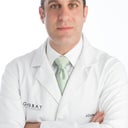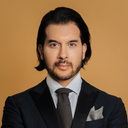Can a dentist remove your buccal fat?
I was at my dermatologist and they said that a cosmetic dentist would remove buccal fat as some do do that. Is this accurate?
I was at my dermatologist and they said that a cosmetic dentist would remove buccal fat as some do do that. Is this accurate?


What’s trending? Who’s turning heads? Which TikTok myths need busting? We’ve got you. No fluff, no gatekeeping—just real talk. Get our free, unfiltered newsletter.